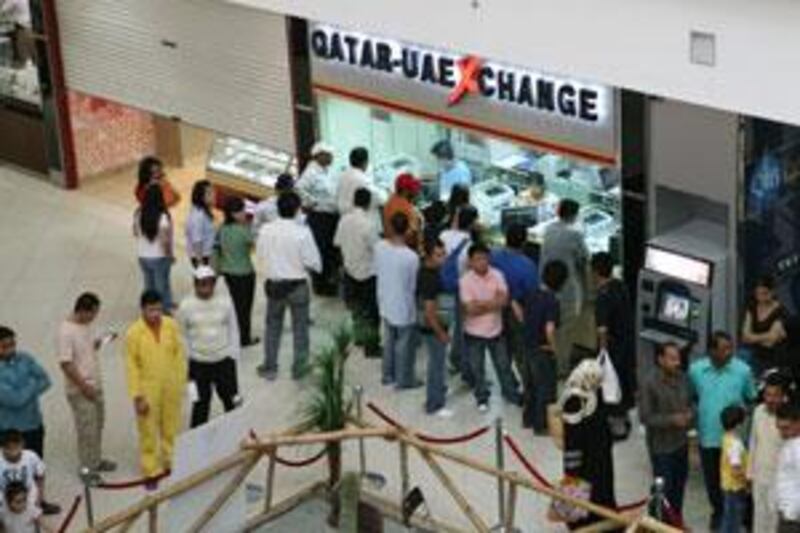Representatives from the GCC secretariat want to delay releasing the Gulf's common currency. The call, made at the GCC Banking Conference in Manama yesterday, is the first formal recognition that the original deadline of Jan 1 next year to have a common GCC currency in circulation is no longer feasible, a point many analysts have stressed over the past year.
Although the GCC states still plan to complete preliminary steps to prepare for introducing the common currency by December, the process will not be finalised until a dedicated GCC monetary council is created towards the end of this year. "As soon as the monetary council is ratified by the member states, one of its tasks is to set the new timetable for introducing the physical currency," said Nasser al Kaud, the deputy of the assistant secretariat general for economic affairs at the GCC. But Mr al Kaud said the GCC expected to make some progress this year towards a framework that would allow the currency to circulate between banks in a virtual form, before it takes physical shape.
Analysts say the process is likely to mirror steps taken by the European Monetary Union before the introduction of the euro. "We are hoping that by 2010 we will have the accounting unit, the name, and the value in place," Mr al Kaud said. The monetary council would also be responsible for deciding the location of a GCC central bank, he said. Analysts said that while the delay was inevitable, it was not welcome. "The delay was expected but they should be telling us when the new deadline is," said John Sfakianakis, the chief economist at Saudi Arabia British Bank. "Having delay after delay is not good for the union, nor is it good for its credibility to the outside world."
Deciding the location of the central bank may be difficult, given that nearly every member state is likely to want to host it. Since all GCC states are also likely to want to name the new currency after their own, some commentators have proposed that the currency be called the khaliji, Arabic for "the gulf", rather than the dinar, dirham, or riyal. Economists say the financial crisis is not helping the process, given the instability it has introduced into the region's banking system.
Policymakers will prefer to delay the creation of the monetary union so they can focus on addressing slowing growth and credit shortages across the region. "When the barn is on fire, you don't start rebuilding the house," said Eckart Woertz, an economist at the Gulf Research Center in Dubai. "To make it possible, they will need more political will." But Mr al Kaud said the financial crisis had not stopped member states from trying to achieve similar inflation rates to ease the transition to a common currency.
With inflation throughout the region falling, analysts said one of the key hurdles to achieving a union had been removed. In December, the GCC heads of state ratified the monetary union agreement, which outlined the goals and process that will eventually lead to the common currency. At the time, the Gulf leaders repeated that they would aim to have the new currency in circulation by Jan 1 next year, saying that any delay in the process would have to be announced later.
The road to monetary union in the Gulf has not been without some difficulties. In 2007, Kuwait surprised other member nations when it de-pegged its dinar from the US dollar. Oman also threw the project off track in 2006, when it decided it would not join the monetary union next year. The monetary council will consist of two bodies, a board of the GCC's central bank governors, and an executive body that has yet to be appointed.
Today, all six GCC central bank governors are expected to speak at the GCC Banking Conference, where they will receive questions from an audience of regional bankers. @Email:tpantin@thenational.ae






